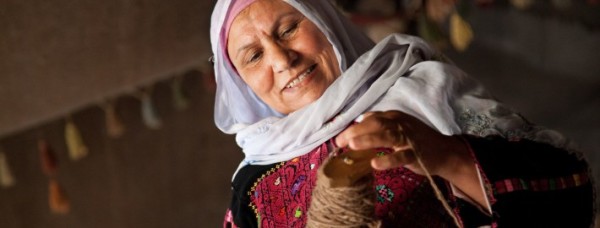
Sidreh – Lakiya Negev Weaving
Sidreh is a non-profit organization established in 1998 in Lakiya to contribute towards the empowerment, realization of the rights, and improvement of the socio-economic status of Palestinian-Arab Bedouin women in the Negev. Sidreh's mission is to support the Palestinian-Arab woman in the Negev in her pursuit of the full realization of herself and her rights as well as of those of her community. Sidreh's vision is a society in which the Palestinian-Arab woman has full ownership over herself and her decisions, fully enjoys her rights, enjoys safety and stability, feels pride regarding her cultural heritage, and realizes her place as an active member in her society.
Sidreh is named after the tree growing in the Negev and mentioned in the Koran, being used as a metaphor for women survival and strength.
Sidreh sees the empowerment of women as a strategic goal for the sustainable development of local Bedouin communities in the Negev in the short and long term by:
Improving educational levels of Bedouin women (access to knowledge)
Increasing income of Bedouin women (access to resources)
Improving the social position of Bedouin women (empowerment and participation)
Promoting sustainable community development (professionalization, institutional strengthening and sustainability)
This tradition is a strong part of communal life. The weaving is one of the last traces of the unique Bedouin heritage, now that the people no longer lead a nomadic life. Today, the young girls in the community see the weaving and learn from their mothers and grandmothers. On Bedouin Heritage Day (held every year in May-June) schools bring their students to see our handiwork, and many visitors come to Lakiya.
The weaving is in daily use not only because we are proud of our culture, but also because it is the main source of income for the 70 families. Older women and abandoned wives begin to regain their self-respect through this employment.
Mariam, Lakiya‘s production manager, says the project gave her an invaluable opportunity to explore her potential. She has gained a sense of empowerment from being able to supply the family income, and is proud that all her children have received good education as a result. Mariam says: "The project has been a life-changing experience for us. Now I drive a car, use the Internet. I feel I am free."
Visit Artist's Website 